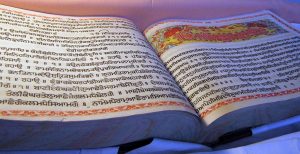Hijri/Hijra/Al-Hijra/Hijrah –August 31, 2019
Hijri is a Muslim holiday. This date marks the beginning of a new year for Muslims. Unlike the recent festivals, Eid al-Fitr and Eid al-Adha, this day is not celebrated as much. The Muslim calendar is based on lunar cycles, so the date on the Gregorian calendar shifts every year.
The origins behind this the new year have to do with Muhammad. This date is when the prophet Muhammad migrated from Mecca to Medina to escape persecution. Muhammad also brought with him devout followers and friends, known as muhajirun. The muhajirun are praised in the Quran for enduring hardships in Mecca for their belief in Islam.
This day represents the starting point of the Muslim era, and the beginning of the Muslim calendar. Sunni Muslims have no specific rituals tied to this day. They may think about starting a new year, making resolutions for the new year, and spending time with family, if possible. Muhammad dated his correspondence during his migration. So, the date that Muhammad fled Mecca was July 16, 622, on the Julian calendar. The Julian calendar was mostly accurate, but it did not add leap days, and after several decades, the Julian calendar was many days off. You can learn more about the Julian calendar in a separate post.
However, Shiite Muslims celebrate the new year differently. Shiites start the new year with ten days of mourning for the slaying of Muhammad’s cousin, Ali and his grandson, Hussein Ibn Ali. Shiites believe that Ali and Hussein Ibn Ali were the rightful caliphs (leaders) to succeed the prophet Muhammad. However, they faced opposition, and were ultimately murdered. Devout Shiites spend the first ten days of the new year in morning and fasting.
Learn more about Muhammad's journey, Ali and Hussein Ibn Ali, and the differences between Shiite and Sunni Muslims with these titles:
Pehla Parkash Guru Granth Sahib – August 31, 2019

Pehla Parkash Guru Granth Sahib is a Sikh holiday. There is some discrepancy on the date it is celebrated each year. The dates range from August 31 – September 7. On whichever day they choose to observe, the Sikh community will celebrate the anniversary of the instillation of the Guru Granth Sahib in Amritsar. The Guru Granth Sahib is the holy text in Sikhism, much like the bible is to Christianity. The book contains poems, and ideas for how one should behave. When Guru Gobind Singh formed the Khalsa, he abolished the idea of one person being the head of Sikhism. However, the Guru Granth Sahib is considered to be a continually living guru.
Sikhs do not worship this book, but it is a sacred text. The book contains poems, hymns, and ideas on how to live life best. The book promotes equality of all people no matter what, including gender. This was a very progressive idea at the time, since it was written during the 16th and 17th centuries.The book says “There is only one breath; all are made of the same clay; the light within all is the same.” The text also discusses how to practice humility, compassion, kindness and love.
To celebrate this day, Gurudwaras have a continuous recitation of the Guru Granth Sahib. This is often followed by a telling of a story, through dance, reenactment or reading the story aloud. This may be followed by singers singing heroic ballads. As is common in Sikh celebrations, langar will be served for all who want it.
Learn more about Sikhism and the Guru Granth Sahib with these items:


Add a comment to: The Origins and Practices of Hijri & Pehla Parkash Guru Granth Sahib